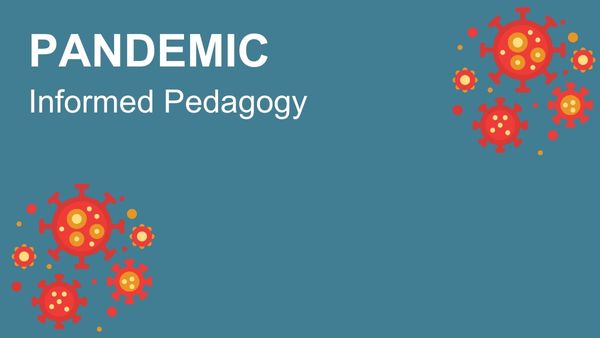By Diane D. Chapman and Maria Gallardo-Williams, Office for Faculty Excellence

College instructors who taught between the Spring of 2020 and the Fall of 2021 were involuntarily entered in the largest educational research study ever conducted: Pandemic teaching. Although this sounds like a very big claim, never before in history have all the colleges and universities in the world been forced to synchronize and take all their courses online at the same time. That includes instructors that were already teaching online and instructors that were teaching in-person. That means nearly everybody who was teaching in person prior to Spring 2020 now has a before and after case, allowing for comparison of their in-person courses with their online courses. Not only that, the prolonged pandemic afforded us time to refine our online courses, so while the end of Spring 2020 and the Summer of 2020 might be considered emergency pandemic teaching, by the Fall of 2020 most people had made great advances by improving and refining their online strategies through experience, or using Pandemic Informed Pedagogy (PIP).
It gets better: Due to worldwide conditions, we were forced to extend grace to our students, something that before the pandemic might have been considered a sign of weakness. All of a sudden we had to confront what we really mean by rigor. What do we really mean by essential pedagogical elements in our class? It turns out that a lot of the things we took for granted before the pandemic, such as the possibility of a deadline or the importance of essential lessons in many subjects were notions that were actually challenged by the impossibility of meeting in person. That’s when we learned that online labs are possible, and can be even better than in person labs. That’s when we learned that studio classes can actually be facilitated online, that’s when we were confronted with the need for developing new exam questions, new assessments, and new projects. We learned because we had to, we had no choice. We were forced to innovate due to circumstances beyond our control.
But what do we do now, what do we do with all the things that we learned? Do we throw it all away because in our minds the pandemic might be over? Do we insist on being fully in person, as if we don’t know better? Throwaway all that experience? What if instead we take advantage of everything that we developed in such a short period of time?
Here are some things that we learned that we should never walk back:
- We should no longer enforce penalties for missing deadlines. Some of us don’t call them deadlines anymore, we call them best-by dates, and we use them to keep students on track. If a student misses an assignment, they can always submit it later as long as it is before the end of the semester.. Our job is not to figure out why the student might need an extension, but to figure out how to accommodate extension when they are requested. College students are adults and they’re responsible for the choices they make. Our job is to help them master the content of our class and to keep them on track to the best of their abilities. Grace is here to stay.
- We recognize that a student can acquire skills online, just as well as they can acquire them in person. Despite the fact that online education and video instruction have been around for decades, the stigma persists. It is time to acknowledge the value of good online instruction. We don’t need all our students on campus all the time. That is an outdated model that is ready to be changed for something more practical. Let’s continue developing online courses, which have the potential to serve a much larger population with the flexibility that they inherently bring.
- We acknowledge that office hours can be held online and they can be beneficial to more learners. Before the pandemic, most instructors had in-person office hours only. A few students were able to attend, but few took that opportunity. It wasn’t uncommon to see only one or two students during office hours, or none at all. Online office hours (some even offered at night!) allow access to students that might otherwise not attend them. Students who live far from campus, students with mobility-related disabilities, or students who have jobs or caregiving responsibilities might find it difficult to make an extra trip to campus to come to office hours. These barriers are removed when office hours are online. If the instructor goes the extra mile and makes the online shared time inclusive to all in attendance, access to precious instructor time suddenly becomes available to all students. We are never going back.
- We take a hard look at our learning objectives. If there was one thing that had to happen in order to complete our courses in remote emergency pandemic mode was an examination of what was really important. What were the relevant things students had to master in order to get a grade for this class? A lot of superfluous material had to go due to lack of time or lack of interest. In examining our learning objectives, we became better instructors. We made hard choices about what was essential and what was not. We need to keep using those criteria when designing and redesigning our courses.